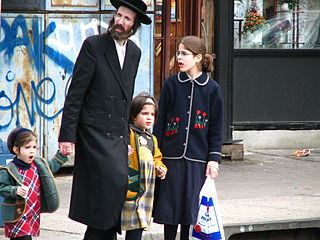To say that the Pew Research Center’s survey of U.S. Jews has had an impact on its subject population is an understatement. In synagogues and federations across America, it’s been the talk of the community since it was released last month, and for good reason.
That the survey was done outside of the organized Jewish world is itself, as the psychotherapists say, diagnostic. Since the 1990 National Jewish Population Survey discovered that more American Jews were marrying outside the tribe than within, Jewish demography and what it has to say about the future of American Jewry have become too heavily fraught to manage internally. The 2000-2001 NJPS was so heavily contested that it almost wasn’t released at all.
To its great credit, and possibly to defend itself against the charge of Gentile kibbitzing, the Pew researchers consulted widely and did their homework assiduously. In contrast to their prior religion surveys, they made strenuous efforts to indicate how their results relate to those obtained by others. As someone who has followed Pew surveys with some care over the past decade, I’d say this is best they’ve ever done, and — in a field increasingly dominated by publication on websites without benefit of peer review — a model for everyone else to follow.
To be sure, there have been some objections to the survey’s largely grim news. J.J. Goldberg, eminence grise of the Forward, mounted an argument against Pew’s bottom line: “a significant rise in those who are not religious, marry outside the faith and are not raising their children Jewish.” Quoth Goldberg, “It’s not true. None of it.” In response, Pew’s Alan Cooperman and Greg Smith made embarrassingly clear that Goldberg didn’t know what he was talking about and that it was true, all of it.
Perhaps the most important contribution of the survey concerns generational variation among the various streams of Jewish practice. If you want to know just how much trouble the Conservative movement is in, consider that the proportion of young Jewish adults (18-29) who identify with that movement is less than half the proportion of over-65-year-olds who do. Among Reform Jews, the comparable generational deficit is 25 percent.
The real shocker, however, is the shift in the Orthodox population, away from Modern Orthodoxy and towards Ultra-Orthodoxy. Among Jews over 65, the Modern Orthodox outnumber the Ultra-Orthodox 2-1. But among young adults, the Ultra-Orthodox outnumber the Modern Orthodox 9-1. Overall, the proportion of young adults who identify as Modern Orthodox is just 25 percent of the proportion of over-65-year-olds who do.
What makes the wasting away of the Modern Orthodox important is that they represent the most broadly committed segment of the American Jewish community. They have been the American Orthodox mainstream that, in the middle of the 20th century, developed a way of remaining dedicated to traditional Jewish practice while acquiring the secular learning necessary to become an integrated segment American society.
In terms of how they rate the essentials of Jewish identity, the Modern Orthodox think it’s more important to remember the Holocaust and lead an ethical life than the Ultra-Orthodox. They believe it’s far more important to work for justice and equality. They are twice as likely to say that intellectual curiosity matters. They rate caring about Israel higher than any of the other streams, and they are also more likely to be members of a Jewish organization besides their synagogue.
So why is Modern Orthodoxy losing out to Ultra-Orthodoxy? One obvious reason is the very high Ultra-Orthodox birth rate: over four children per family. But at a talk after Shabbat services Saturday at Beth David Synagogue, the locus of Modern Orthodoxy in West Hartford, I suggested another: The Orthodox day schools where the Modern Orthodox send their children are mostly staffed by Ultra-Orthodox rabbis. You’re not going to keep the next generation, I said, if you have your children taught according to the norms of another movement.
No one gave me an argument.






